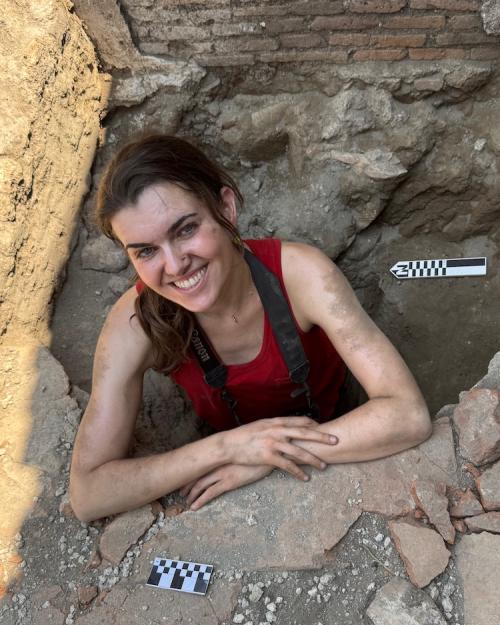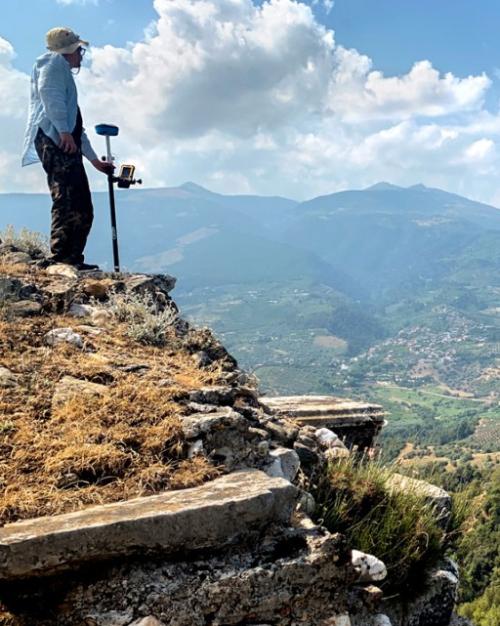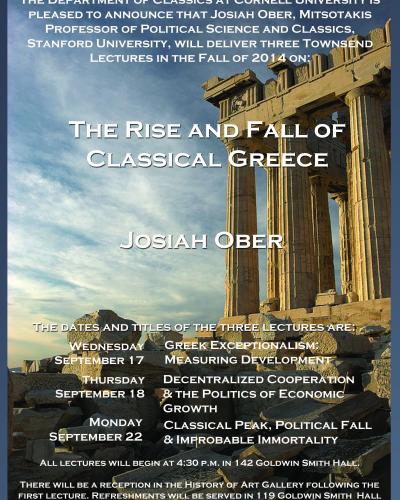Josiah Ober, Mitsotakis Professor of Political Science and Classics Stanford University, delivered three Townsend Lectures in the Fall of 2014 on "The Rise and Fall of Classical Greece."
The dates and titles of the three lectures were:
Wednesday, September 17 - "Greek Exceptionalism: Measuring Development"
Lord Byron described ancient Greece as great, fallen, and immortal. He was right; these lectures explained why. Why measuring and explaining welfare matters, and why the conditions under which welfare is achieved also matters. The importance and possibilities of empirical/historical testing of hypotheses. The nature of the data: Voluminous, recently aggregated, machine readable. Validity of proxy evidence, stylized facts, and arguments from silence. The shape of the ancient Greek world. Measuring economic and demographic change across the the Greek world from the Bronze Age to the early 20th century. Contrasting the “premodern normal" with "efflorescence" sets up the puzzle: Why was classical antiquity so different from the premodern Greek normal?
Thursday, September 18 - "Decentralized Cooperation & the Politics of Economic Growth"
The problem of social cooperation and distribution of benefits. Rationality and its limits. The alternative to autocratic centralized authority and empire: Information sharing among dispersed and diverse individuals and communities.Two hypotheses for explaining growth through knowledge exchange: Fair rules, high capital investment, and low transaction costs. Competition, rational cooperation, learning, and adaptive emulation. Preconditions for decentralized growth. The end of the Bronze Age, Early Iron Age conditions, and the emergence of citizen-centered regimes in an age of expansion.
Monday, September 22 - "Classical Peak, Political Fall & Improbable Immortality"
Divergent trajectories of three super-poleis: Imperial failure followed by rule egalitarianism and low transaction costs at Athens. The rise and fall of Spartan hegemony. The fall and rise of fourth-century Syracuse. Cooperation at scale: Rise of federalism in central Greece. Free-agent experts, and the market in dangerous skills: military experts, artillery engineers, state financiers. Philip II among the fourth-century "opportunists." Chaeronea and aftermath. Why political fall did not lead quickly to economic collapse: The Macedonian kings as rational warlords, poleis as hardened targets, and the negotiation of low taxation regimes. Result is the persistence of Greek culture to the Roman takeover.





